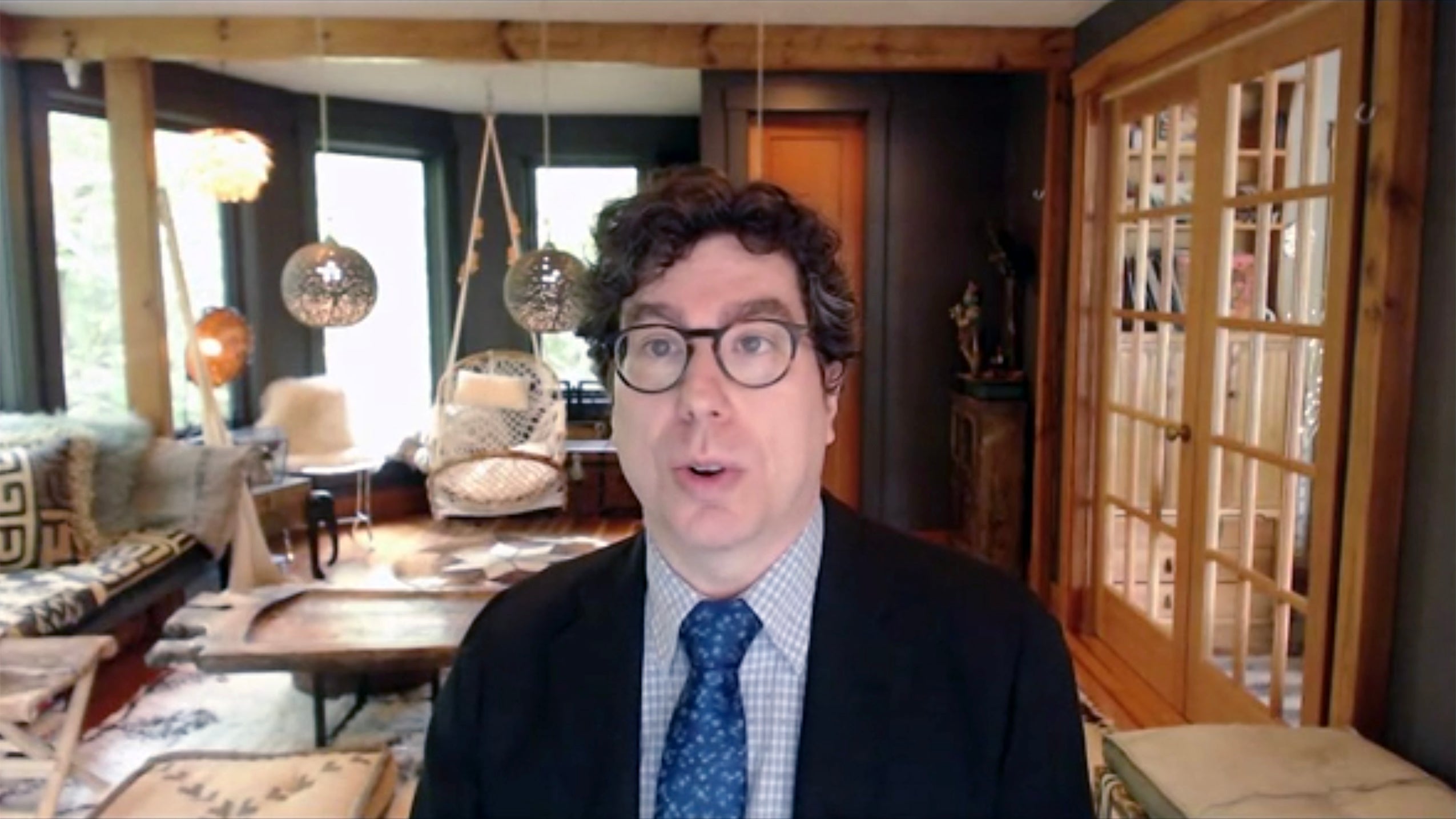“Next week’s headlines could hypothetically feature Apple getting into the car business — or Tesla getting into the smartphone business. … This dizzying game of musical chairs of companies and products would be all to the good if the makers of each had their functionality compatible with evolving common standards of communications with the others,” Jonathan Zittrain ’95 told members of Congress this week.
Jonathan Zittrain ’95, Harvard’s George Bemis Professor of International Law, Professor of Computer Science, and Professor at the Harvard Kennedy School of Government, address this issue when he appeared as a witness for the Senate Subcommittee on Competition Policy, Antitrust, and Consumer Rights on June 15 to discuss the current state of home technologies and antitrust regulation/law.
[Download Professor Zittrain’s written testimony]
Zittrain, who is also the co-founder of the Berkman Klein Center for Internet & Society, was asked to testify alongside industry representatives from Amazon, Google, and Sonos about the “Internet of Things” (IoT), or the network of consumer products connected to the Internet.
Zittrain stressed that a successful and secure IoT should be interoperable. That is, for the IoT to flourish, he said, a smart product should not limit its compatibility to one, or even just a few operating systems, and vice versa.
“It seems absurd that buying a new telephone could affect your air conditioner, but that’s not an unusual situation right now,” Zittrain said.
“Th[e] Internet, and the World Wide Web built upon it in a similar spirit — a killer app whose inventor exclaimed, ‘This is for everyone’ — had and to this day have no CEO, no main menu, no “center” at all,” he added. “These very absences allowed the ‘unowned’ Internet, and the content proliferating upon it from so many sources, to quickly render the stove-piped proprietary information services thin and tinny by comparison, hopelessly behind in both service offerings and content. Those walled gardens soon retreated to become either small content outposts on the Internet themselves — abandoning charging for ‘connect time’ — or to become simply commoditized Internet network on-ramp providers for the balance of the dial-up era.”
Zittrain proposed solutions for policymakers to foster a similar ecosystem for the currently-proprietary IoT. For instance, he raised the idea of challenging the lock-in techniques of vendors, which make it difficult to connect devices owned by different companies, such as an iPhone to control Google products.
“The law should contemplate breaking the artificial connection between which phone we purchase and which assistant we are to use; between which assistant we use and which devices it can instruct; and, for devices themselves, between what hardware we purchase and who can write the software that runs upon it,” Zittrain said.
In his written testimony, he also argued that if devices “lose the ability to be smart, they should still be no less dumb than their analog counterparts.” He further elaborated that people should still be able “to use these products even if they no longer wish to pay some monthly subscription demanded by the original vendor, or if the original vendor goes bankrupt or pivots to an upgraded or unrelated product line.”
He encouraged Congress to provide fiscal incentives for the development of open source software and standards for the IoT, just as it had done in the past with early investments in the Internet.
“Basic support for Internet protocol development was perhaps some of the best bang for the buck that the American taxpayer has received in the history of the country. Those investments pay off, and we should make more of them,” Zittrain said.
He also made a point in his written testimony to underscore the privacy implications of IoT, calling it a potential “privacy apocalypse.” He described how lax legislation around surveillance and security could lead to hacks that could cripple a smart device or leave a consumer vulnerable to being tracked. And he emphasized that this hearing comes at a critical moment for legislators.
“Now is the time to arrive at a vision for what the public interest demands of this new and perhaps enduring set of technologies, and to set clear boundaries for market players to appreciate and respect,” Zittrain said. “That can help prevent the problems that will be much harder to patch later.”
